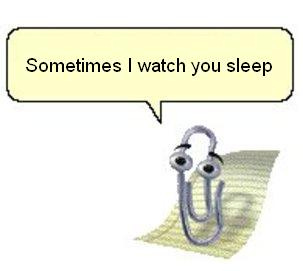5-min read
Picture this: you’re browsing through the web, and a site sparks your interest. It's attempting to sell you a product, so you go through the usual process of logging in through either Facebook or Twitter and fill in the details. A few weeks later, you get bombarded by spam and messages which are strikingly familiar and associated with you. What happened?

You've just been a pawn of a not-so-subtle, buzzword-induced process known as Ad retargeting. By signing up on that website, you accepted the T&C's and Privacy Policies, which the ordinary layman would not have understood, nor cared about. But the distasteful part of this transaction is that you're receiving a product for your whole identity. Your likes, dislikes, searches, location — basically anything under the sun — are being sent to companies. This retargeting method faces backlash because products mysteriously follow users all over the web. The user doesn’t know why, so it is perceived as spying.
To personalize content directed to us, companies have walked into our online presence and crapped all over the place. People have started opting out of interest-based ads. Google's Search and Location History provides useful insight into what companies know about you and how much data has been collected. Fortunately, you can opt-out of these settings, but there are better ways to approach this problem.
Virtual Assistants (then)
The older generation might know Microsoft Bob, the failed software assistant, which looks like it came right out of a childhood nightmare.
Unfortunately, Microsoft didn't learn after this mistake and introduced Clippy. Marketed as an 'intelligent user interface,' it drew heavy criticism and was ultimately mocked and parodied until it received the pink slip in 2001.
Both of these products were regarded as one of the worst inventions of all time by TIME, with Microsoft Bob coming in just before Vio, Coke's vibrancy drink — basically carbonated, flavored milk.
Users want to feel in control.
You cannot force something on people. It will backfire almost instantly. Case in point: Apple's $100MM debacle — pushing the new U2 album onto all the iTunes customers. Five hundred million people were enraged enough that Apple had to set up a support site and a one-click removal tool.
Apple let itself into the music libraries of its users, and this did not go well with the majority. It wasn't because they hated U2, but because this breach of privacy was not taken lightly.
Virtual Assistants (now)
And Google didn't shy away from this forceful approach — with their addition of Google+ — automatically creating a profile based on your other suite usage.
They were trying to fulfill a need that had already been met. Why was big tech forcing something on us, which was supposedly so good?

These days users don’t even care about personalized content. Developers should think twice before inserting that .js file, which adds a Welcome, {User} on the site, which is not needed, and focuses on making the site faster, and more readable.
Google Glass — bringing creepiness outside
I guess it can go both ways. Google had to publish an article on the now-defunct Google Glass about how not to be creepy in real life. Some beautiful lines cherry-picked from the site include
[Don’t] Be creepy or rude (aka, a ‘Glasshole’) — Gawker
Asking for Too Much Information (TMI)
Berating the user before they even enter the site is a huge red flag. You're not OkCupid, and I am not going on a date with you. I am not telling you where my dog was born because it has no relevance.
On the other hand, if you build a rapport with a customer, I am more than happy to share information. It goes both ways, but we have to meet in the middle.
Don’t ask for unnecessary details: Do you need my address? Do you need my pin code? Why are you asking me all these questions? I just want to sign up! Keep it to the bare minimum, please.
Almost 50% of users withhold accurate information because of unsolicited offers.
Automated Stress
Even Medium falls into this spectrum by automatically following your Facebook friends who also use the site. I have friends whose musings I would not like to subscribe to and notify on their email.
After some digging, I was reminded by the outrage Google users expressed after Google Buzz released the ‘Auto-Follow’ feature, which automatically suggested and created circles based on your frequently emailed contacts. This feature did not go over well, and people were furious with the crossed boundaries.
Live Chat(s)
WP Engine — After a few minutes of browsing on the /plans section of their site, a live chat opens up, and a person messages you. As lovely as it is receiving support from the company, I was startled by the sudden notification. On refreshing the browser, I noticed you have to input your email and name before someone comes to assist you. On further inspection, I noticed that you only get prompted for a live chat if you slide to one of the ‘premium’ plans. Keep it classy, WP Engine.
Some other examples
When you get feedback from your users, keep track of it, use it, make the most of it. If someone has gone to the effort of giving you feedback, they are interested enough in your site to care. You don’t necessarily have to take every suggestion your users offer, but if you get lots of comments about certain aspects of your website, it’s time to consider looking into it.
Forcible account registration in e-commerce — a maker-centric feature a departure from real life. Many users would rather abandon carts than being forced to create an account. Web users are fickle, and being forced to do anything rankles them. There are some contexts where this is appropriate, but generally speaking, it should be easy to transact.
There are tons of questions on UX.StackExchange asking about copywriting and how to approach users simply and elegantly.
The Mac OS X login screen has no frills—just the avatar of the person of interest.
Epilogue
This infographic serves as a quick reminder if you're venturing into the creepiness stage. If your startup does any of these things, please stop.

Conclusion
This is not a satirical post. There is data to back it up:
43% of both US and UK consumers say that they have ignored all future communications from a company after receiving irrelevant information or products.
Stop over-targeting consumers: we know you want us to take you instead of the million other companies popping up everywhere but please do not look at our profiles on LinkedIn. I’m talking about you — small, homegrown websites that love every one of their customers.












